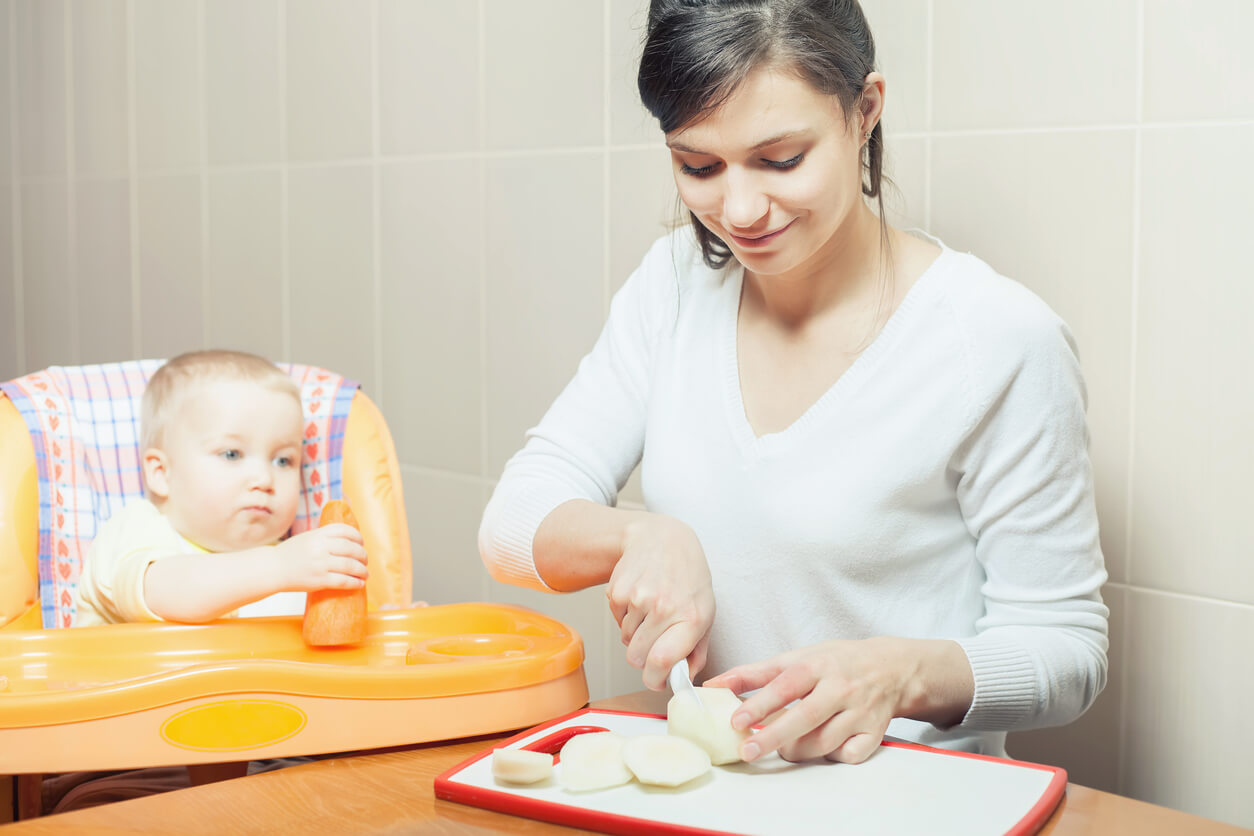Plan Your Baby’s Meals Well: 4 Tips
It's decisive that you plan your baby's meals well in order to optimize their nutrition and achieve their proper development. Learn how!

Well-planned meals for babies are crucial for their proper growth and development. It’s crucial that they obtain the amount of nutrients they need to reach a state of equilibrium in their internal environment. Otherwise, chronic and complex diseases could appear over the years. Keep reading to learn 4 tips that will help you plan your baby’s meals.
Before we begin, it’s important to note that during the first stages of life, parents need to restrict certain foods in order to avoid complications. For example, honey before the first year of life (due to the risk of botulism), salt, raw meats, and sugar as long as possible.
Tricks to plan your baby’s meals well
Next, we’re going to show you a series of tricks to plan your baby’s meals properly. If you have any further questions, you can always consult a nutrition professional. This way, you’ll get a menu adapted to each individual circumstance.

1. Make a forecast of the meals
The best way to organize your baby’s meals is to create a weekly schedule of all meals and achieve a good distribution of nutrients. Above all, pay attention to the amount of protein your little one consumes. Proteins are the most important elements in the development of tissues, so their requirements are increased at this time of life.
In addition, it’s also important to include quality fats and vegetables in sufficient quantities. The latter foods provide a good amount of essential micronutrients, such as vitamins and minerals. Thanks to them, various processes, such as the transport of oxygen through the blood, are optimized.
2. Cook more food
Get into the habit of preparing a little more food than you’re going to eat. This way, you can always freeze some of it and, when you’re short on time, you can use the leftovers to make a healthy dish for your baby quickly.
3. Use baby food
At the supermarket, there’s a wide variety of baby food that’s suitable for little ones. It’s good to first examine the labeling, but in general, they’re elaborations that contain several quality antioxidants. These elements neutralize the formation of free radicals and their subsequent accumulation in the body’s tissues. Thanks to this effect, the risk of getting sick in the medium term is reduced, according to a study published in the European Journal of Medicinal Chemistry.
Note that a good option is to prepare homemade purees and then freeze them. This way, all the ingredients are chosen with precision and the presence of artificial additives or simple sugars is avoided. Both compounds could produce alterations in the internal environment and condition the good functioning of the organism.

4. Buy quality products on the Internet
Nowadays, there are many web portals that offer excellent quality baby and children’s food. Not only baby foods and purees but also soups and many other different preparations. These products are prepared with fresh and natural ingredients that manage to provide a significant amount of essential nutrients. For people who have little time, this is a good alternative, as it will fit baby food into their daily routines.
Plan baby meals well
As you’ve seen, there are different tricks that you can put in place to plan baby meals correctly. This will be crucial to ensure that they grow properly and without major physiological alterations. Of course, if there’s any underlying disease, it may be necessary to adapt the menus to facilitate the management of the same.
Finally, don’t forget that diet is one of the healthy habits that children need to learn, but it’s not the only one that determines the proper functioning of the body. From the early stages of life, it’s essential that children get used to sleeping an optimal number of hours every night. Also, regular exercise is a must.
